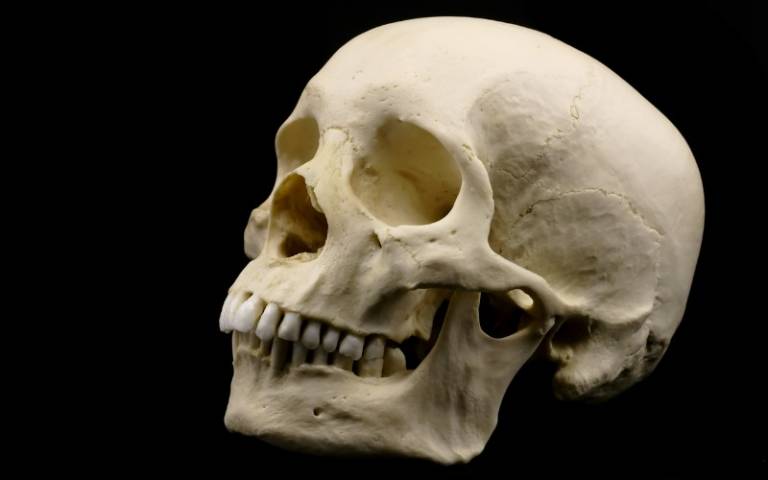Functioning antibodies recovered from ancient teeth
16 August 2023
Scientists found antibodies extracted from 800-year-old teeth that are stable and still able to recognise viral proteins, according to new research from the University of Nottingham and UCL.

The study, published in iScience, examined antibodies extracted from human teeth dating back to the 13th-15th century, using a technique called affinity purification.
It’s the first time that researchers have been able to recover fully functional human antibodies from such a long time ago.
This new work expands the field of palaeoproteomics, the study of ancient proteins, which could allow researchers to analyse how human antibody responses developed throughout history.
Antibodies are proteins produced by the immune system as a natural response to infectious organisms like viruses and bacteria. Their job is to recognise those microbes so that the immune system can attack them and clear them from the body.
Palaeoproteomics has already demonstrated the potential to travel back in time, with ancient proteins successfully recovered from a 1.7-million-year-old rhinoceros’ dental enamel and a 6.5-million-year-old ostrich eggshell. The techniques have previously been applied by the Nottingham team to analyse other disease-associated proteins recovered from archaeological human bones and teeth, which allowed them to identify an unusual ancient form of the skeletal disorder Paget’s disease.
In the new study, the authors also found preliminary evidence of stable antibodies preserved in approximately 40,000-year-old mammoth bones.
Professor Robert Layfield, leader of the research from the University of Nottingham, said: “In discovery science we come to expect the unexpected, but the realisation that intact, functional antibodies can be purified from skeletal remains in the archaeological record was quite astonishing. Some ancient proteins were known to be stable, but these tend to be ‘structural’ proteins such as collagens and keratins, that are pretty inert.”
Professor Anisur Rahman (UCL Medicine), co-author of the study, said: “Antibodies are different because we are able to test whether they can still do their job of recognising viruses or bacteria even after hundreds of years. In this case we found that antibodies from medieval teeth were able to recognise Epstein-Barr virus, which causes glandular fever. In future it could be possible to look at how antibodies from ancient specimens react to diseases present during those periods, such as the Black Death.”
Links
Image
Credit: uzuri71 on iStock
Media contact
Dr Matt Midgley
E: m.midgley [at] ucl.ac.uk
 Close
Close

